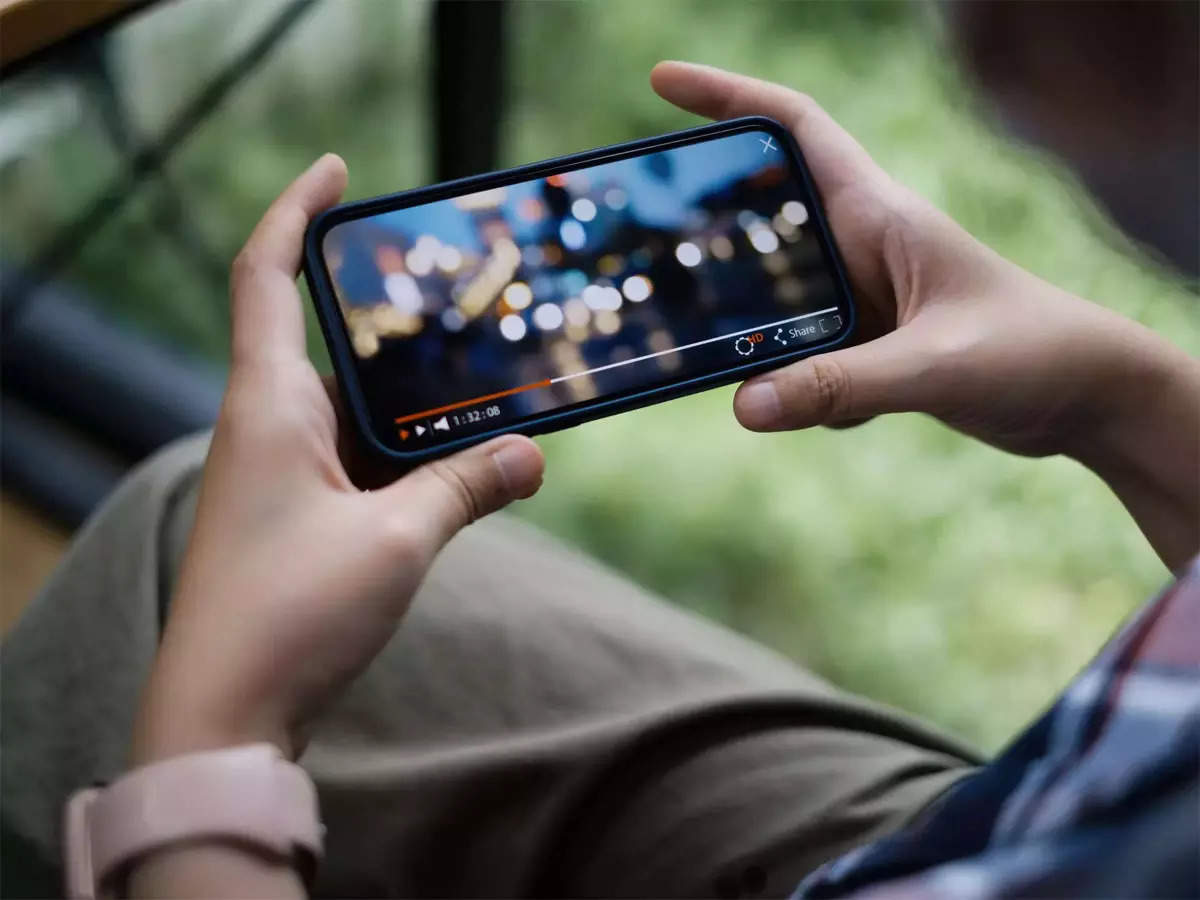
[ad_1]
The central government recently announced that the trials of the home-grown Direct-to-Mobile (D2M) technology, developed by Saankhya Labs and IIT Kanpur, will soon be held in 19 cities. This tech will enable mobile users to stream videos on their smartphones without an active internet connection.
In June last year, IIT-Kanpur released a white paper on D2M Broadcasting in collaboration with Prasar Bharti and Telecommunications Development Society, explaining about the technology.In a letter in August 2023, the ministry of communications listed its use cases, which may include content delivery, education and disseminating information in crisis/ emergency situations.
Here’s an explainer on what the technology is all about, its features, benefits and underlying technologies for the future of media consumption.
What is D2M
According to the letter, the demand for personalised, on-demand content led to the emergence of Direct to Mobile (D2M) as a content delivery approach. This technology enables users to access a wide range of multimedia content directly on their smartphones and tablets, bypassing traditional broadcasting methods, in which signals are transmitted from a broadcasting station to receivers, such as televisions and radios.
How D2M will work
The D2M technology works just like an FM radio where signals are sent via a station and received by FM radios on certain frequencies. Similarly, direct-to-home (DTH) broadcasting in which a dish antenna receives broadcast signals directly from satellites and transmits them to your set-top box.
D2M is aimed at using the best out of both technology and transmit signals to receivers which in this case will be smartphones. The technology will use terrestrial telecommunications infrastructure and an assigned spectrum to transmit data signals directly to mobile phones.
According to information and broadcasting secretary Apurva Chandra, the government will reserve the 470-582MHz spectrum for this emerging technology. Using D2M, users will be able to directly stream multimedia content such as live TV matches without using the internet.
How it will help users, telecom operators
Both smartphone users and telecom operators are set to benefit from this technology. The D2M technology will help in shifting 25-30% of video traffic to unclog the 5G networks, helping in accelerating digital evolution and democratising content delivery in the country.
According to the government, 69% of content accessed by users on 80 crore smartphones in India is in the video format. Apart from serving those who have other devices like TVs, the technology will help in reaching nearly 8-9 crore “TV Dark” homes across the country.
Reportedly, out of the 280 million households in the country, about 190 million currently have television sets.
In June last year, IIT-Kanpur released a white paper on D2M Broadcasting in collaboration with Prasar Bharti and Telecommunications Development Society, explaining about the technology.In a letter in August 2023, the ministry of communications listed its use cases, which may include content delivery, education and disseminating information in crisis/ emergency situations.
Here’s an explainer on what the technology is all about, its features, benefits and underlying technologies for the future of media consumption.
What is D2M
According to the letter, the demand for personalised, on-demand content led to the emergence of Direct to Mobile (D2M) as a content delivery approach. This technology enables users to access a wide range of multimedia content directly on their smartphones and tablets, bypassing traditional broadcasting methods, in which signals are transmitted from a broadcasting station to receivers, such as televisions and radios.
How D2M will work
The D2M technology works just like an FM radio where signals are sent via a station and received by FM radios on certain frequencies. Similarly, direct-to-home (DTH) broadcasting in which a dish antenna receives broadcast signals directly from satellites and transmits them to your set-top box.
D2M is aimed at using the best out of both technology and transmit signals to receivers which in this case will be smartphones. The technology will use terrestrial telecommunications infrastructure and an assigned spectrum to transmit data signals directly to mobile phones.
According to information and broadcasting secretary Apurva Chandra, the government will reserve the 470-582MHz spectrum for this emerging technology. Using D2M, users will be able to directly stream multimedia content such as live TV matches without using the internet.
How it will help users, telecom operators
Both smartphone users and telecom operators are set to benefit from this technology. The D2M technology will help in shifting 25-30% of video traffic to unclog the 5G networks, helping in accelerating digital evolution and democratising content delivery in the country.
According to the government, 69% of content accessed by users on 80 crore smartphones in India is in the video format. Apart from serving those who have other devices like TVs, the technology will help in reaching nearly 8-9 crore “TV Dark” homes across the country.
Reportedly, out of the 280 million households in the country, about 190 million currently have television sets.
[ad_2]
Source link
